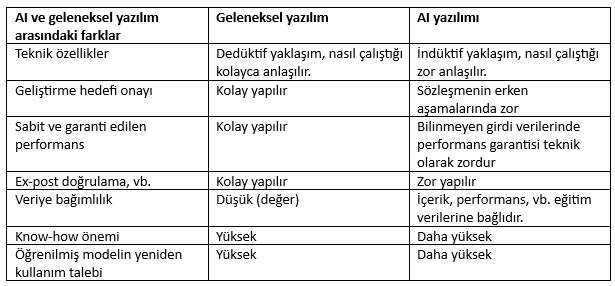Blog
Taklit ve kopyaya karşı koruma:Faydalı model hakkı, ürününüzün dış görünümünü, bu görünümü taklit etmek veya kopyalamak isteyen rakiplerden korur.Münhasır haklar:Faydalı model hakkı sahibi olarak, ürününüzün faydalı modelini kullanma ve ticaretini yapma konusunda münhasır hakka sahip olursunuz.İşletmenizin değerini artırma:Ürünlerinizi faydalı model hakkı ile koruyarak, işletmenizin değerini artırabilirsiniz.Hukuki koruma: Faydalı model hakkı sahibi olarak, ürününüzü taklit eden rakiplere karşı yasal adımlar atabilirsiniz.
Stratejik tescil
Faydalı modelinizi korumanın önemli bir yönü, stratejik ve zamanında tescil etmektir. Faydalı modelinizin korunmaya uygun olması için yeni olması gerektiğini unutmayın. Faydalı modelinizi geç tescil ettirirseniz, faydalı modeliniz kamuya mal olmuş olarak kabul edilebilir ve bu da koruma hakkınızı ortadan kaldırabilir. Faydalı modellerinizi zamanında ve stratejik bir şekilde tescil ettirerek, kendinize güçlü bir hukuki konum sağlarsınız ve rakiplerinizin faydalı modeliniz erişimini etkili bir şekilde engelleyebilirsiniz.Daha fazla bilgi?
Bir girişimci olarak ürünlerinizi korumak mı istiyorsunuz? Faydalı model hakkını değerlendirin. Faydalı model hakkı ve fikri mülkiyetinizi nasıl koruyabileceğiniz hakkında daha fazla bilgi almak için Mustafa Kahya ile iletişime geçebilirsiniz. [post_title] => Faydalı model
[post_excerpt] =>
[post_status] => publish
[comment_status] => open
[ping_status] => open
[post_password] =>
[post_name] => faydali-model
[to_ping] =>
[pinged] =>
[post_modified] => 2024-10-17 12:19:26
[post_modified_gmt] => 2024-10-17 10:19:26
[post_content_filtered] =>
[post_parent] => 0
[guid] => https://bg.legal/?p=43781
[menu_order] => 0
[post_type] => post
[post_mime_type] =>
[comment_count] => 0
[filter] => raw
)
[1] => WP_Post Object
(
[ID] => 43714
[post_author] => 65
[post_date] => 2024-10-10 16:51:56
[post_date_gmt] => 2024-10-10 14:51:56
[post_content] => AI uygulamaları için yapılan sözleşmeler, AI yazılımının kendine has teknik özelliklerinden dolayı standart yazılım sözleşmeleri değildir. AI yazılımı verilere bağımlıdır ve son ürünün ne olacağını önceden tahmin etmek zordur. Bu da AI yazılımının performansını garanti etmeyi ve geliştirme hatalarından kimin sorumlu olduğunu belirlemeyi zorlaştırır. Ayrıca, eğitilmiş modellerin ve eğitim veri setlerinin yeniden kullanımı için büyük bir talep vardır, bu da fikri mülkiyet ve kullanım koşulları ile ilgili karmaşık sorunlara yol açar.
[post_title] => Faydalı model
[post_excerpt] =>
[post_status] => publish
[comment_status] => open
[ping_status] => open
[post_password] =>
[post_name] => faydali-model
[to_ping] =>
[pinged] =>
[post_modified] => 2024-10-17 12:19:26
[post_modified_gmt] => 2024-10-17 10:19:26
[post_content_filtered] =>
[post_parent] => 0
[guid] => https://bg.legal/?p=43781
[menu_order] => 0
[post_type] => post
[post_mime_type] =>
[comment_count] => 0
[filter] => raw
)
[1] => WP_Post Object
(
[ID] => 43714
[post_author] => 65
[post_date] => 2024-10-10 16:51:56
[post_date_gmt] => 2024-10-10 14:51:56
[post_content] => AI uygulamaları için yapılan sözleşmeler, AI yazılımının kendine has teknik özelliklerinden dolayı standart yazılım sözleşmeleri değildir. AI yazılımı verilere bağımlıdır ve son ürünün ne olacağını önceden tahmin etmek zordur. Bu da AI yazılımının performansını garanti etmeyi ve geliştirme hatalarından kimin sorumlu olduğunu belirlemeyi zorlaştırır. Ayrıca, eğitilmiş modellerin ve eğitim veri setlerinin yeniden kullanımı için büyük bir talep vardır, bu da fikri mülkiyet ve kullanım koşulları ile ilgili karmaşık sorunlara yol açar.
Standart sözleşme maddeleri
Buna bir örnek, “kamu kuruluşları tarafından Yapay Zekâ (AI) satın alınması için standart sözleşme maddeleri”dir.[1] Bu sözleşme, yüksek riskli AI sistemlerini satın alan hükümetler için hazırlanmıştır. Henüz bir model sözleşmedir. Satın alma yapan tarafların lehine hazırlanmıştır ve tedarikçilerin normalde kabul etmeyeceği hükümler içermektedir.AI ve geleneksel yazılım arasındaki farklar
AI yazılımının en önemli teknik özelliklerinden biri verilere bağımlı olmasıdır. Bu, modeli eğitmek için kullanılan verilerin kalitesinin, AI yazılımının performansı için kritik olduğu anlamına gelir. Veriler düşük kalitede ise, AI yazılımı büyük olasılıkla kötü performans gösterecektir. Bu durum genellikle "çöp girerse, çöp çıkar" olarak ifade edilir. AI yazılımının bir diğer önemli özelliği, ex-post doğrulama yapmanın zor olmasıdır. Eğitilmiş bir model oluşturulduğunda, insanlar için genellikle modelin oluşturulma sürecini ve eğitilen modelin yapısını anlamak zordur. Bu da geliştirme hatalarından kimin sorumlu olduğunu belirlemeyi zorlaştırır. Ayrıca, eğitilmiş modellerin ve eğitim veri setlerinin yeniden kullanımı için büyük bir talep vardır. Eğitilmiş modeller, ek öğrenme ile evrilebilmekte ve başka kullanımlara uyarlanması nispeten kolaydır. Bu, fikri mülkiyet ve kullanım koşulları ile ilgili karmaşık sorunlara yol açmaktadır.Farkların listesi AI ve yazılım arasındaki farkların tablosu

AI ve yazılım geliştirme süreci farklılıkları
Standart yazılımın (solda: şelale modeli) geliştirme süreci, AI yazılımının geliştirme sürecinden (sağda: iteratif süreç) farklıdır:
Sonuç
AI yazılımının bu kendine özgü özellikleri ışığında, AI uygulamaları için sözleşmelerin bu karmaşık sorunları dikkate alacak şekilde dikkatlice hazırlanması önemlidir. Bu, ilgili tarafların hakları ve sorumlulukları konusunda netlik sağlamaya ve anlaşmazlıkların önlenmesine yardımcı olabilir. Bir AI uygulamasının geliştirilmesi veya satın alınmasıyla ilgili bir sözleşme hazırlatmak veya gözden geçirmek istiyorsanız, Mustafa Kahya iletişime geçin. [1] AI_Procurement_Clauses_template_High_Risk-EN.pdf (bg.legal) [post_title] => AI uygulamalarının geliştirilmesi/satın alınması için bir sözleşmenin neden standart bir yazılım sözleşmesi degildir?
[post_excerpt] =>
[post_status] => publish
[comment_status] => open
[ping_status] => open
[post_password] =>
[post_name] => ai-uygulamalarinin-gelistirilmesi-satin-alinmasi-icin-bir-sozlesmenin-neden-standart-bir-yazilim-sozlesmesi-degildir
[to_ping] =>
[pinged] =>
[post_modified] => 2024-10-10 16:52:40
[post_modified_gmt] => 2024-10-10 14:52:40
[post_content_filtered] =>
[post_parent] => 0
[guid] => https://bg.legal/?p=43714
[menu_order] => 0
[post_type] => post
[post_mime_type] =>
[comment_count] => 0
[filter] => raw
)
[2] => WP_Post Object
(
[ID] => 43701
[post_author] => 65
[post_date] => 2024-10-10 11:40:45
[post_date_gmt] => 2024-10-10 09:40:45
[post_content] => Hollanda'da ticaret yapmak isteyen şirketler ve girişimciler için doğru hukuki altyapıyı oluşturmak son derece kritiktir. Ticari ilişkilerin başarıya ulaşmasında sözleşmelerin önemi büyüktür. Sözleşmeler, taraflar arasındaki hak ve yükümlülükleri netleştirdiği için, potansiyel anlaşmazlıkların önlenmesinde büyük rol oynar. İşte burada BG.legal devreye giriyor. BG.legal, Hollanda'da iş yapmak isteyen şirketler için kapsamlı sözleşme hazırlama ve değerlendirme hizmetleri sunmaktadır.
[post_title] => AI uygulamalarının geliştirilmesi/satın alınması için bir sözleşmenin neden standart bir yazılım sözleşmesi degildir?
[post_excerpt] =>
[post_status] => publish
[comment_status] => open
[ping_status] => open
[post_password] =>
[post_name] => ai-uygulamalarinin-gelistirilmesi-satin-alinmasi-icin-bir-sozlesmenin-neden-standart-bir-yazilim-sozlesmesi-degildir
[to_ping] =>
[pinged] =>
[post_modified] => 2024-10-10 16:52:40
[post_modified_gmt] => 2024-10-10 14:52:40
[post_content_filtered] =>
[post_parent] => 0
[guid] => https://bg.legal/?p=43714
[menu_order] => 0
[post_type] => post
[post_mime_type] =>
[comment_count] => 0
[filter] => raw
)
[2] => WP_Post Object
(
[ID] => 43701
[post_author] => 65
[post_date] => 2024-10-10 11:40:45
[post_date_gmt] => 2024-10-10 09:40:45
[post_content] => Hollanda'da ticaret yapmak isteyen şirketler ve girişimciler için doğru hukuki altyapıyı oluşturmak son derece kritiktir. Ticari ilişkilerin başarıya ulaşmasında sözleşmelerin önemi büyüktür. Sözleşmeler, taraflar arasındaki hak ve yükümlülükleri netleştirdiği için, potansiyel anlaşmazlıkların önlenmesinde büyük rol oynar. İşte burada BG.legal devreye giriyor. BG.legal, Hollanda'da iş yapmak isteyen şirketler için kapsamlı sözleşme hazırlama ve değerlendirme hizmetleri sunmaktadır.
BG.legal’ın hazırlayabileceği sözleşme türleri
BG.legal, hem Hollanda'da yerleşik şirketler hem de Hollanda'da iş yapmak isteyen yabancı şirketler için birçok farklı sözleşme türünü hazırlama konusunda uzmanlaşmıştır. Özellikle bazı özel nitelikteki sözleşmeler, ticari ilişkilerin doğru şekilde yönetilmesi açısından büyük önem taşır. Bu sözleşmeler arasında aracılık sözleşmesi (bemiddelingsovereenkomst), acente sözleşmesi (agentuurovereenkomst) ve vekâlet sözleşmesi (lastgevingsovereenkomst) gibi özel türdeki sözleşmeler yer alır. 1. Aracılık sözleşmesi (bemiddelingsovereenkomst) Aracılık sözleşmesi, bir aracının belirli bir anlaşma için iki tarafı bir araya getirmesini kapsayan bir sözleşme türüdür. Bu sözleşmeye göre aracı, belirli bir ücret karşılığında iki taraf arasında bir anlaşma yapılmasını sağlar. Bu süreçte aracı, yalnızca anlaşmanın yapılmasını sağlamakla yükümlüdür ve işlemler tamamen müvekkil adına yürütülür. Aracılık sözleşmeleri, genellikle tek bir anlaşmanın yapılmasını amaçladığı için geçici bir nitelik taşır. Örneğin, bir emlakçı aracılığıyla bir mülkün satışı bu tür bir sözleşmeye örnek olarak verilebilir. BG.legal, bu tür sözleşmelerin doğru şekilde hazırlanmasını ve tarafların çıkarlarının korunmasını sağlar. 2. Acente sözleşmesi (agentuurovereenkomst) Acente sözleşmesi, sürekli bir ticari ilişkiyi temsil eder. Bu sözleşme, bir ticari temsilcinin, bir şirket adına veya kendi adına, şirket için sürekli olarak anlaşmalar yapması üzerine kurulur. Örneğin, bir distribütörün bir markanın ürünlerini sürekli olarak pazarlaması ve satışı bu tür bir ilişkiye örnektir. Acente sözleşmesi ile aracılık sözleşmesi arasındaki en büyük fark, acente sözleşmesinin daha uzun süreli ve sürekli bir ilişkiyi kapsamasıdır. Bu nedenle, taraflar arasındaki yükümlülükler ve haklar daha kapsamlıdır. BG.legal, bu karmaşık ilişkiyi yönetecek acente sözleşmelerinin hazırlanmasında deneyime sahiptir. 3. Vekâlet sözleşmesi (lastgevingsovereenkomst) Vekâlet sözleşmesi, bir kişinin (vekâlet veren), diğer bir kişiyi (vekil) kendi adına ve hesabına yasal işlemler yapmakla görevlendirmesini içeren bir sözleşme türüdür. Vekil, bu işlemleri kendi adına ya da vekâlet veren adına gerçekleştirebilir, ancak işlemler her zaman vekâlet verenin çıkarına yapılır. Bu sözleşme türü, daha karmaşık hukuki düzenlemeler gerektirir ve vekil ile vekâlet veren arasındaki ilişkinin detaylıca tanımlanması önemlidir. BG.legal, bu tür vekâlet sözleşmelerinin hem Hollanda hukukuna uygun hem de tarafların menfaatlerini koruyacak şekilde hazırlanmasında uzmanlaşmıştır. Özellikle vekâlet ilişkilerinde doğabilecek çıkar çatışmaları gibi konulara dikkat edilmesi gerekir ve BG.legal bu alanlarda tarafları bilgilendirmekte ve koruma altına almaktadır. 4. Genel şartlar / genel hüküm ve koşullar BG.legal sadece özel nitelikli sözleşmeleri değil, aynı zamanda ticari ilişkilerde büyük öneme sahip olan genel şartlar (algemene voorwaarden) hazırlama konusunda da uzmanlık sunmaktadır. Genel şartlar, ticari ilişkilerin temelini oluşturan ve tarafların her türlü ticari faaliyette uyması gereken kuralları belirleyen belgelerdir. Doğru hazırlanmamış genel şartlar, anlaşmazlıklar durumunda ciddi hukuki sorunlara yol açabilir. BG.legal, bu konuda müşterilerine hukuki destek sağlayarak, sorunsuz ticari süreçlerin yaşanmasına yardımcı olur.Sonuç
Hollanda'da iş yapmak ya da Hollandalı şirketlerle iş birliği içinde olmak isteyen şirketler için doğru sözleşmelerin hazırlanması ve değerlendirilmesi hayati öneme sahiptir. BG.legal, geniş hukuki bilgi birikimiyle, iş dünyasında kullanılan farklı sözleşmeleri hazırlayabilir ve değerlendirebilir. İster aracılık, ister acente ya da vekâlet sözleşmesi olsun, BG.legal her türlü özel sözleşme konusunda uzman desteği sağlar. Ayrıca, genel şartların doğru hazırlanması için de BG.legal ile çalışmak, şirketlerin hukuki risklerini minimize etmelerine yardımcı olur. Hollanda’da başarılı bir ticaret hayatı sürdürmek için BG.legal’ın uzman ekibine danışmak, işlerinizi güvenle yürütmenizi sağlar. [post_title] => Türkiye’de Hollanda ile ticaret yaparken doğru sözleşmeler hazırlamak: BG.legal’ın rolü
[post_excerpt] =>
[post_status] => publish
[comment_status] => open
[ping_status] => open
[post_password] =>
[post_name] => turkiyede-hollanda-ile-ticaret-yaparken-dogru-sozlesmeler-hazirlamak-bg-legalin-rolu
[to_ping] =>
[pinged] =>
[post_modified] => 2024-10-10 11:40:45
[post_modified_gmt] => 2024-10-10 09:40:45
[post_content_filtered] =>
[post_parent] => 0
[guid] => https://bg.legal/?p=43701
[menu_order] => 0
[post_type] => post
[post_mime_type] =>
[comment_count] => 0
[filter] => raw
)
[3] => WP_Post Object
(
[ID] => 43510
[post_author] => 86
[post_date] => 2024-09-11 11:13:38
[post_date_gmt] => 2024-09-11 09:13:38
[post_content] => Every
[post_title] => Türkiye’de Hollanda ile ticaret yaparken doğru sözleşmeler hazırlamak: BG.legal’ın rolü
[post_excerpt] =>
[post_status] => publish
[comment_status] => open
[ping_status] => open
[post_password] =>
[post_name] => turkiyede-hollanda-ile-ticaret-yaparken-dogru-sozlesmeler-hazirlamak-bg-legalin-rolu
[to_ping] =>
[pinged] =>
[post_modified] => 2024-10-10 11:40:45
[post_modified_gmt] => 2024-10-10 09:40:45
[post_content_filtered] =>
[post_parent] => 0
[guid] => https://bg.legal/?p=43701
[menu_order] => 0
[post_type] => post
[post_mime_type] =>
[comment_count] => 0
[filter] => raw
)
[3] => WP_Post Object
(
[ID] => 43510
[post_author] => 86
[post_date] => 2024-09-11 11:13:38
[post_date_gmt] => 2024-09-11 09:13:38
[post_content] => Every Background
The Claimant and Erasmus have jointly developed a platform forThe dispute
Firstly, the parties were in dispute regarding whether or not the term “Interpretation of the term “mice”
In interpreting the term “mice”, the court usedEnforcement of the patents
The decision
The court held that it is clear from the intention between the parties and the words used in the license agreement that the license agreement was granted merely for the use of mice. Harbour would thus not be allowed to use the patented method for rats. However, since the license agreement did not limit the enforcement capacity of Harbour to infringing uses of mice, Harbour is allowed to enforce the licensed patents against third parties using rats or other non-human mammals.Conclusion
This decision once again confirms that the court honors not only the linguistic meaning of a license agreement, but also the meaning that the parties were entitled to attach to that text, given the given circumstances of the case and based on what they were entitled to expect from each other. If you have any questions regarding [post_title] => The Haviltex-criterion once again defines how a license agreement should be interpreted
[post_excerpt] =>
[post_status] => publish
[comment_status] => open
[ping_status] => open
[post_password] =>
[post_name] => the-haviltex-criterion-once-again-defines-how-a-license-agreement-should-be-interpreted
[to_ping] =>
[pinged] =>
[post_modified] => 2024-09-11 11:15:08
[post_modified_gmt] => 2024-09-11 09:15:08
[post_content_filtered] =>
[post_parent] => 0
[guid] => https://bg.legal/?p=43510
[menu_order] => 0
[post_type] => post
[post_mime_type] =>
[comment_count] => 0
[filter] => raw
)
[4] => WP_Post Object
(
[ID] => 43456
[post_author] => 65
[post_date] => 2024-08-27 16:30:20
[post_date_gmt] => 2024-08-27 14:30:20
[post_content] => When you create something, it is protected by
[post_title] => The Haviltex-criterion once again defines how a license agreement should be interpreted
[post_excerpt] =>
[post_status] => publish
[comment_status] => open
[ping_status] => open
[post_password] =>
[post_name] => the-haviltex-criterion-once-again-defines-how-a-license-agreement-should-be-interpreted
[to_ping] =>
[pinged] =>
[post_modified] => 2024-09-11 11:15:08
[post_modified_gmt] => 2024-09-11 09:15:08
[post_content_filtered] =>
[post_parent] => 0
[guid] => https://bg.legal/?p=43510
[menu_order] => 0
[post_type] => post
[post_mime_type] =>
[comment_count] => 0
[filter] => raw
)
[4] => WP_Post Object
(
[ID] => 43456
[post_author] => 65
[post_date] => 2024-08-27 16:30:20
[post_date_gmt] => 2024-08-27 14:30:20
[post_content] => When you create something, it is protected by Copyright in the Netherlands
The answer is that the copyright remains with the creator unless it is officially transferred. According to Dutch copyright law, a deed that explicitly states the transfer of rights is required. Without a deed specifying the transferred work, the copyright does not transfer. AnRecent judgment
The Court of Amsterdam recently ruled on copyright related to a crochet pattern. A creator had designed new crochet and knitting patterns and accompanying instructional materials (text and video), for which she received compensation. For the work, the principal had drafted agreements for several projects in collaboration. The creator did not sign any agreement but still produced the crochet patterns and materials, meaning that there was no deed for the transfer of copyright. According to the Court of Amsterdam, the principal infringed on the creator's copyright. As a result, the principal was ordered to pay damages and compensate forConclusion
According to Dutch copyright law, copyright can only be transferred through [post_title] => Transfer of copyright in the Netherlands
[post_excerpt] =>
[post_status] => publish
[comment_status] => open
[ping_status] => open
[post_password] =>
[post_name] => transfer-of-copyright-in-the-netherlands
[to_ping] =>
[pinged] =>
[post_modified] => 2024-08-27 16:30:20
[post_modified_gmt] => 2024-08-27 14:30:20
[post_content_filtered] =>
[post_parent] => 0
[guid] => https://bg.legal/?p=43456
[menu_order] => 0
[post_type] => post
[post_mime_type] =>
[comment_count] => 0
[filter] => raw
)
[5] => WP_Post Object
(
[ID] => 43220
[post_author] => 86
[post_date] => 2024-08-20 10:22:08
[post_date_gmt] => 2024-08-20 08:22:08
[post_content] => In a significant development for the biotechnology and agricultural sectors, The Hague Court of First Instance of the Unified Patent Court (“UPC”) issued an order granting a preliminary injunction in favor of Amycel LLC against Szymon Spyra.
This decision underscores the importance of conducting thorough technical analysis in determining patent infringement.
[post_title] => Transfer of copyright in the Netherlands
[post_excerpt] =>
[post_status] => publish
[comment_status] => open
[ping_status] => open
[post_password] =>
[post_name] => transfer-of-copyright-in-the-netherlands
[to_ping] =>
[pinged] =>
[post_modified] => 2024-08-27 16:30:20
[post_modified_gmt] => 2024-08-27 14:30:20
[post_content_filtered] =>
[post_parent] => 0
[guid] => https://bg.legal/?p=43456
[menu_order] => 0
[post_type] => post
[post_mime_type] =>
[comment_count] => 0
[filter] => raw
)
[5] => WP_Post Object
(
[ID] => 43220
[post_author] => 86
[post_date] => 2024-08-20 10:22:08
[post_date_gmt] => 2024-08-20 08:22:08
[post_content] => In a significant development for the biotechnology and agricultural sectors, The Hague Court of First Instance of the Unified Patent Court (“UPC”) issued an order granting a preliminary injunction in favor of Amycel LLC against Szymon Spyra.
This decision underscores the importance of conducting thorough technical analysis in determining patent infringement.
The case
Amycel LLC is the holder ofProcedural issue: unreasonable delay
One of the critical issues addressed by Court of First Instance was whether Amycel acted with an unreasonable delay in bringing the UPC action. This could have led the court to reject the request for provisional measures under Article 62 ofSubstantive issue: the patentability of mushrooms
The case also delved into the substantive matter of whether mushrooms, like the 'Heirloom' strain, could be patented under the European Patent Convention (EPC). Szymon Spyra contended that mushrooms should be considered plants and, therefore, fall under the exclusion from patentability of plant varieties under Article 53(b) EPC. The Court of First Instance rejected this argument, clarifying that mushrooms are classified in the distinct kingdom Fungi, separate from plants. As such, they do not fall within the exclusion outlined in Article 53(b). The court emphasized that exceptions to patentability must be interpreted narrowly and noted thatConclusion
The Court of First Instance’s decision in favor of Amycel LLC reflects the court's careful consideration of both procedural and substantive legal issues, particularly in the context of biotechnology patents. The ruling highlights the importance of thorough technical analysis in patent infringement cases and the necessity of aligning patent law interpretation with current scientific knowledge. This case also sets a precedent for how the UPC may approach similar issues in the future, particularly regarding the urgency requirement for provisional measures and the patentability of [post_title] => Mushrooms may grow, but are not plants - thus patentable
[post_excerpt] =>
[post_status] => publish
[comment_status] => open
[ping_status] => open
[post_password] =>
[post_name] => mushrooms-may-grow-but-are-not-plants-thus-patentable
[to_ping] =>
[pinged] =>
[post_modified] => 2024-08-20 10:22:08
[post_modified_gmt] => 2024-08-20 08:22:08
[post_content_filtered] =>
[post_parent] => 0
[guid] => https://bg.legal/?p=43220
[menu_order] => 0
[post_type] => post
[post_mime_type] =>
[comment_count] => 0
[filter] => raw
)
[6] => WP_Post Object
(
[ID] => 43052
[post_author] => 86
[post_date] => 2024-08-05 11:07:00
[post_date_gmt] => 2024-08-05 09:07:00
[post_content] => It often appears in court proceedings that evidence need to be produced by one of the parties, but that said evidence could contain confidential information, such as
[post_title] => Mushrooms may grow, but are not plants - thus patentable
[post_excerpt] =>
[post_status] => publish
[comment_status] => open
[ping_status] => open
[post_password] =>
[post_name] => mushrooms-may-grow-but-are-not-plants-thus-patentable
[to_ping] =>
[pinged] =>
[post_modified] => 2024-08-20 10:22:08
[post_modified_gmt] => 2024-08-20 08:22:08
[post_content_filtered] =>
[post_parent] => 0
[guid] => https://bg.legal/?p=43220
[menu_order] => 0
[post_type] => post
[post_mime_type] =>
[comment_count] => 0
[filter] => raw
)
[6] => WP_Post Object
(
[ID] => 43052
[post_author] => 86
[post_date] => 2024-08-05 11:07:00
[post_date_gmt] => 2024-08-05 09:07:00
[post_content] => It often appears in court proceedings that evidence need to be produced by one of the parties, but that said evidence could contain confidential information, such as The case
In this case, Huawei brought an action against Netgear for infringement of theirThe license agreement
ThisThe UPC decision
In response to the submission request, the UPC held that since Netgear already had access toApplication of UPC Rules of Procedure
This decision illustratesApplication to practice
This decision confirms that [post_title] => Protection of confidential information in UPC court proceedings
[post_excerpt] =>
[post_status] => publish
[comment_status] => open
[ping_status] => open
[post_password] =>
[post_name] => protection-of-confidential-information-in-upc-court-proceedings
[to_ping] =>
[pinged] =>
[post_modified] => 2024-08-05 11:07:00
[post_modified_gmt] => 2024-08-05 09:07:00
[post_content_filtered] =>
[post_parent] => 0
[guid] => https://bg.legal/?p=43052
[menu_order] => 0
[post_type] => post
[post_mime_type] =>
[comment_count] => 0
[filter] => raw
)
[7] => WP_Post Object
(
[ID] => 42917
[post_author] => 65
[post_date] => 2024-07-18 10:01:07
[post_date_gmt] => 2024-07-18 08:01:07
[post_content] => Hollanda'da iş yapan Türk girişimciler ve Hollanda'da çalışan Türk vatandaşları için iş hukukunun inceliklerini anlamak büyük önem taşır. Doğru ve dikkatlice hazırlanmış bir iş sözleşmesi, işveren ve çalışan arasındaki iş birliğinin temelini oluşturur ve olası anlaşmazlıkları önler. Aşağıdaki metin, işverenler için iş sözleşmesi yaparken dikkat edilmesi gereken önemli noktaları ve çalışanlar için sunulan iş sözleşmelerinin nasıl değerlendirilmesi gerektiğini kapsamaktadır.
[post_title] => Protection of confidential information in UPC court proceedings
[post_excerpt] =>
[post_status] => publish
[comment_status] => open
[ping_status] => open
[post_password] =>
[post_name] => protection-of-confidential-information-in-upc-court-proceedings
[to_ping] =>
[pinged] =>
[post_modified] => 2024-08-05 11:07:00
[post_modified_gmt] => 2024-08-05 09:07:00
[post_content_filtered] =>
[post_parent] => 0
[guid] => https://bg.legal/?p=43052
[menu_order] => 0
[post_type] => post
[post_mime_type] =>
[comment_count] => 0
[filter] => raw
)
[7] => WP_Post Object
(
[ID] => 42917
[post_author] => 65
[post_date] => 2024-07-18 10:01:07
[post_date_gmt] => 2024-07-18 08:01:07
[post_content] => Hollanda'da iş yapan Türk girişimciler ve Hollanda'da çalışan Türk vatandaşları için iş hukukunun inceliklerini anlamak büyük önem taşır. Doğru ve dikkatlice hazırlanmış bir iş sözleşmesi, işveren ve çalışan arasındaki iş birliğinin temelini oluşturur ve olası anlaşmazlıkları önler. Aşağıdaki metin, işverenler için iş sözleşmesi yaparken dikkat edilmesi gereken önemli noktaları ve çalışanlar için sunulan iş sözleşmelerinin nasıl değerlendirilmesi gerektiğini kapsamaktadır. - Belirli veya belirsiz süreli, sabit veya değişken çalışma saatli bir iş sözleşmesi mi yapacaksınız?
- Esneklik nasıl sağlanır?
- Geçerli bir toplu iş sözleşmesi var mı?
- Hangi (ara) fesih süreleri veya deneme süreleri mümkündür ve sizin için uygundur?
- İşletmenizin korunması için rekabet yasağı, iş ilişkisi yasağı ve gizlilik sözleşmesi gibi maddeleri düşünmelisiniz.
 [post_title] => Hollanda İş Hukuku: Türk İşverenler ve Çalışanlar için Rehber
[post_excerpt] =>
[post_status] => publish
[comment_status] => open
[ping_status] => open
[post_password] =>
[post_name] => hollanda-is-hukuku-turk-isverenler-ve-calisanlar-icin-rehber
[to_ping] =>
[pinged] =>
[post_modified] => 2024-07-18 10:01:07
[post_modified_gmt] => 2024-07-18 08:01:07
[post_content_filtered] =>
[post_parent] => 0
[guid] => https://bg.legal/?p=42917
[menu_order] => 0
[post_type] => post
[post_mime_type] =>
[comment_count] => 0
[filter] => raw
)
[8] => WP_Post Object
(
[ID] => 42812
[post_author] => 65
[post_date] => 2024-07-11 14:01:48
[post_date_gmt] => 2024-07-11 12:01:48
[post_content] => BG.legal olarak, sınır ötesi fikri mülkiyet konularının karmaşık ve dinamik doğasını çok iyi anlıyoruz. Türkiye'deki işletmeler, avukatlar ve
[post_title] => Hollanda İş Hukuku: Türk İşverenler ve Çalışanlar için Rehber
[post_excerpt] =>
[post_status] => publish
[comment_status] => open
[ping_status] => open
[post_password] =>
[post_name] => hollanda-is-hukuku-turk-isverenler-ve-calisanlar-icin-rehber
[to_ping] =>
[pinged] =>
[post_modified] => 2024-07-18 10:01:07
[post_modified_gmt] => 2024-07-18 08:01:07
[post_content_filtered] =>
[post_parent] => 0
[guid] => https://bg.legal/?p=42917
[menu_order] => 0
[post_type] => post
[post_mime_type] =>
[comment_count] => 0
[filter] => raw
)
[8] => WP_Post Object
(
[ID] => 42812
[post_author] => 65
[post_date] => 2024-07-11 14:01:48
[post_date_gmt] => 2024-07-11 12:01:48
[post_content] => BG.legal olarak, sınır ötesi fikri mülkiyet konularının karmaşık ve dinamik doğasını çok iyi anlıyoruz. Türkiye'deki işletmeler, avukatlar ve - Hollanda ve AB'de fikri mülkiyet haklarının korunması ve uygulanması konusunda hukuki danışmanlık ve stratejik rehberlik.
- Hukuki süreçlerde temsil, uyuşmazlık çözümü ve dava takibi.
- Sınır ötesi işlemler ve iş birliği anlaşmalarında destek.
- Fikri mülkiyet portföylerine ilişkin durum tespiti ve risk değerlendirmeleri.
- Marka, tasarım ve diğer fikri mülkiyet haklarının tescili ve yönetimi.
 [post_title] => BG.legal: Avrupada Fikri Mülkiyet Ortağınız
[post_excerpt] =>
[post_status] => publish
[comment_status] => open
[ping_status] => open
[post_password] =>
[post_name] => bg-legal-avrupada-fikri-mulkiyet-ortaginiz
[to_ping] =>
[pinged] =>
[post_modified] => 2024-07-11 14:01:48
[post_modified_gmt] => 2024-07-11 12:01:48
[post_content_filtered] =>
[post_parent] => 0
[guid] => https://bg.legal/?p=42812
[menu_order] => 0
[post_type] => post
[post_mime_type] =>
[comment_count] => 0
[filter] => raw
)
[9] => WP_Post Object
(
[ID] => 42476
[post_author] => 65
[post_date] => 2024-06-07 15:40:09
[post_date_gmt] => 2024-06-07 13:40:09
[post_content] => Başvuru sahibi, 29 Mart 2023'te İKRAM isimli görsel markanın Avrupa’da tescili için başvuruda bulundu. Bu marka, 29. sınıftaki gıda ürünlerinden 30. sınıftaki yiyecek ve içeceklere, 32. sınıftaki içeceklere ve 35. sınıftaki toptan ve perakende hizmetlerine kadar geniş bir ürün ve hizmet yelpazesi için düşünülmüştü.
[post_title] => BG.legal: Avrupada Fikri Mülkiyet Ortağınız
[post_excerpt] =>
[post_status] => publish
[comment_status] => open
[ping_status] => open
[post_password] =>
[post_name] => bg-legal-avrupada-fikri-mulkiyet-ortaginiz
[to_ping] =>
[pinged] =>
[post_modified] => 2024-07-11 14:01:48
[post_modified_gmt] => 2024-07-11 12:01:48
[post_content_filtered] =>
[post_parent] => 0
[guid] => https://bg.legal/?p=42812
[menu_order] => 0
[post_type] => post
[post_mime_type] =>
[comment_count] => 0
[filter] => raw
)
[9] => WP_Post Object
(
[ID] => 42476
[post_author] => 65
[post_date] => 2024-06-07 15:40:09
[post_date_gmt] => 2024-06-07 13:40:09
[post_content] => Başvuru sahibi, 29 Mart 2023'te İKRAM isimli görsel markanın Avrupa’da tescili için başvuruda bulundu. Bu marka, 29. sınıftaki gıda ürünlerinden 30. sınıftaki yiyecek ve içeceklere, 32. sınıftaki içeceklere ve 35. sınıftaki toptan ve perakende hizmetlerine kadar geniş bir ürün ve hizmet yelpazesi için düşünülmüştü. 
İtirazlar ve ilk red
6 Haziran 2023'te başvuru,Temyiz ve argümanlar
Başvuru sahibi, bu karara 17 Şubat 2024'te itiraz etti. Argümanları arasında, marka "İkinci temyiz dairesi'nin değerlendirmesi
İkinci Temyiz Dairesi davayı dikkatlice inceledi ve sonunda araştırmacısın itirazlarını doğruladı. İşte bazı önemli değerlendirmeler:Açıklayıcı Karakter:Daire, "İKRAM" kelimesinin AB'deki Türk ve Macar tüketiciler tarafından ürün ve hizmetlerin niteliği açısından açıklayıcı olarak anlaşılacağı kanısındaydı. Bu durum, markanın ürünlerin kaynağını ayırt etmek için uygun olmadığı anlamına geliyordu.Grafik Öğeler:Markanın grafik öğeleri, beyaz büyük harfler, kırmızı arka plan ve yeşil yaprak şekli, reklam tasarımlarında basit ve yaygın olarak kabul edildi. Bu öğeler, markanın ayırt edici gücüne katkıda bulunmadı.Ayırt Edici Güç Eksikliği:Daire, İKRAM markasının, Madde 7, 1. paragraf, b bendi uyarınca, başvuru sahibinin ürün ve hizmetlerini diğer sağlayıcılardan ayırt etme yeteneğine sahip olmadığını belirledi.
Sonuç
Başvuru sahibinin itirazı reddedildi ve Uzman'ın marka başvurusunu reddetme kararı onaylandı. Bu karar, AB'deki marka başvurularında ayırt edici güç ve açıklayıcı olmayan karakterin önemini vurgulamaktadır. Şirketler, başarılı bir tescil için marka başvurularının bu kriterleri karşıladığından emin olmalıdır. AB'de marka başvurularınızda yaşanabilecek olası zorluklar hakkında daha fazla bilgi almak ve en iyi stratejileri belirlemek için uzmanımız Mustafa Kahya ile iletişime geçin. Alanında deneyimli ekibimiz, markanızı başarıyla tescil ettirmenize yardımcı olmak için yanınızda. Sorularınız için bize ulaşın ve markanızı güvence altına almanın yollarını birlikte keşfedelim! [post_title] => Türk girişimciler dikkat: AB'de Türkçe kelimelerle marka başvurusu Riski!
[post_excerpt] =>
[post_status] => publish
[comment_status] => open
[ping_status] => open
[post_password] =>
[post_name] => turk-girisimciler-dikkat-abde-turkce-kelimelerle-marka-basvurusu-riski
[to_ping] =>
[pinged] =>
[post_modified] => 2024-06-07 15:40:09
[post_modified_gmt] => 2024-06-07 13:40:09
[post_content_filtered] =>
[post_parent] => 0
[guid] => https://bg.legal/?p=42476
[menu_order] => 0
[post_type] => post
[post_mime_type] =>
[comment_count] => 0
[filter] => raw
)
)
[post_count] => 10
[current_post] => -1
[before_loop] => 1
[in_the_loop] =>
[post] => WP_Post Object
(
[ID] => 43781
[post_author] => 65
[post_date] => 2024-10-17 12:17:02
[post_date_gmt] => 2024-10-17 10:17:02
[post_content] => Bir girişimci olarak, fikri mülkiyetinizi korumanız önemlidir. Bunu yapmanın yollarından biri, faydalı model hakkından yararlanmaktır. Bu hak, bir ürünün dış görünümünü korur ve hak sahibine bu faydalı modeli kullanma ve ticaretini yapma konusunda münhasır haklar verir. Bu blogda, faydalı model hakkının ne olduğunu ve neden önemli olduğunu açıklıyoruz.
[post_title] => Türk girişimciler dikkat: AB'de Türkçe kelimelerle marka başvurusu Riski!
[post_excerpt] =>
[post_status] => publish
[comment_status] => open
[ping_status] => open
[post_password] =>
[post_name] => turk-girisimciler-dikkat-abde-turkce-kelimelerle-marka-basvurusu-riski
[to_ping] =>
[pinged] =>
[post_modified] => 2024-06-07 15:40:09
[post_modified_gmt] => 2024-06-07 13:40:09
[post_content_filtered] =>
[post_parent] => 0
[guid] => https://bg.legal/?p=42476
[menu_order] => 0
[post_type] => post
[post_mime_type] =>
[comment_count] => 0
[filter] => raw
)
)
[post_count] => 10
[current_post] => -1
[before_loop] => 1
[in_the_loop] =>
[post] => WP_Post Object
(
[ID] => 43781
[post_author] => 65
[post_date] => 2024-10-17 12:17:02
[post_date_gmt] => 2024-10-17 10:17:02
[post_content] => Bir girişimci olarak, fikri mülkiyetinizi korumanız önemlidir. Bunu yapmanın yollarından biri, faydalı model hakkından yararlanmaktır. Bu hak, bir ürünün dış görünümünü korur ve hak sahibine bu faydalı modeli kullanma ve ticaretini yapma konusunda münhasır haklar verir. Bu blogda, faydalı model hakkının ne olduğunu ve neden önemli olduğunu açıklıyoruz.
Faydalı model hakkı nedir?
Faydalı modelin önemi?
Faydalı model hakkı, girişimcileri, ürünlerini taklit eden veya kopyalayan rakiplere karşı koruduğu için önemlidir. Bir girişimci olarak yeni bir ürün tasarlamak için çok zaman, para ve emek harcadıysanız, başkalarının bu emeği kolayca kullanmasını istemezsiniz. Faydalı model hakkı ile, üçüncü kişilerin ürününüze haksız şekilde müdahale etmesine karşı güçlü bir koruma aracına sahip olursunuz. Ayrıca, faydalı model hakkı, ürünlerinizin benzersiz ve değerli olduğunu göstermenize yardımcı olarak işletmenizin değerini artırabilir.Faydalı model hakkının avantajları
Faydalı model hakkı, girişimciler için çeşitli avantajlar sunar, bunlar arasında:Taklit ve kopyaya karşı koruma:Faydalı model hakkı, ürününüzün dış görünümünü, bu görünümü taklit etmek veya kopyalamak isteyen rakiplerden korur.Münhasır haklar:Faydalı model hakkı sahibi olarak, ürününüzün faydalı modelini kullanma ve ticaretini yapma konusunda münhasır hakka sahip olursunuz.İşletmenizin değerini artırma:Ürünlerinizi faydalı model hakkı ile koruyarak, işletmenizin değerini artırabilirsiniz.Hukuki koruma: Faydalı model hakkı sahibi olarak, ürününüzü taklit eden rakiplere karşı yasal adımlar atabilirsiniz.
Stratejik tescil
Faydalı modelinizi korumanın önemli bir yönü, stratejik ve zamanında tescil etmektir. Faydalı modelinizin korunmaya uygun olması için yeni olması gerektiğini unutmayın. Faydalı modelinizi geç tescil ettirirseniz, faydalı modeliniz kamuya mal olmuş olarak kabul edilebilir ve bu da koruma hakkınızı ortadan kaldırabilir. Faydalı modellerinizi zamanında ve stratejik bir şekilde tescil ettirerek, kendinize güçlü bir hukuki konum sağlarsınız ve rakiplerinizin faydalı modeliniz erişimini etkili bir şekilde engelleyebilirsiniz.Daha fazla bilgi?
Bir girişimci olarak ürünlerinizi korumak mı istiyorsunuz? Faydalı model hakkını değerlendirin. Faydalı model hakkı ve fikri mülkiyetinizi nasıl koruyabileceğiniz hakkında daha fazla bilgi almak için Mustafa Kahya ile iletişime geçebilirsiniz. [post_title] => Faydalı model
[post_excerpt] =>
[post_status] => publish
[comment_status] => open
[ping_status] => open
[post_password] =>
[post_name] => faydali-model
[to_ping] =>
[pinged] =>
[post_modified] => 2024-10-17 12:19:26
[post_modified_gmt] => 2024-10-17 10:19:26
[post_content_filtered] =>
[post_parent] => 0
[guid] => https://bg.legal/?p=43781
[menu_order] => 0
[post_type] => post
[post_mime_type] =>
[comment_count] => 0
[filter] => raw
)
[comment_count] => 0
[current_comment] => -1
[found_posts] => 94
[max_num_pages] => 10
[max_num_comment_pages] => 0
[is_single] =>
[is_preview] =>
[is_page] =>
[is_archive] => 1
[is_date] =>
[is_year] =>
[is_month] =>
[is_day] =>
[is_time] =>
[is_author] =>
[is_category] =>
[is_tag] =>
[is_tax] => 1
[is_search] =>
[is_feed] =>
[is_comment_feed] =>
[is_trackback] =>
[is_home] =>
[is_privacy_policy] =>
[is_404] =>
[is_embed] =>
[is_paged] => 1
[is_admin] =>
[is_attachment] =>
[is_singular] =>
[is_robots] =>
[is_favicon] =>
[is_posts_page] =>
[is_post_type_archive] =>
[query_vars_hash:WP_Query:private] => 5e90697397a27372f73c597fe92d4659
[query_vars_changed:WP_Query:private] => 1
[thumbnails_cached] =>
[allow_query_attachment_by_filename:protected] =>
[stopwords:WP_Query:private] =>
[compat_fields:WP_Query:private] => Array
(
[0] => query_vars_hash
[1] => query_vars_changed
)
[compat_methods:WP_Query:private] => Array
(
[0] => init_query_flags
[1] => parse_tax_query
)
[query_cache_key:WP_Query:private] => wp_query:c8e456381f3c0cdaea8d8adbee61a9f1:0.21325900 17546341850.89957300 1754634185
[tribe_is_event] =>
[tribe_is_multi_posttype] =>
[tribe_is_event_category] =>
[tribe_is_event_venue] =>
[tribe_is_event_organizer] =>
[tribe_is_event_query] =>
[tribe_is_past] =>
[tribe_controller] => Tribe\Events\Views\V2\Query\Event_Query_Controller Object
(
[filtering_query:Tribe\Events\Views\V2\Query\Event_Query_Controller:private] => WP_Query Object
*RECURSION*
)
)
[post_title] => Faydalı model
[post_excerpt] =>
[post_status] => publish
[comment_status] => open
[ping_status] => open
[post_password] =>
[post_name] => faydali-model
[to_ping] =>
[pinged] =>
[post_modified] => 2024-10-17 12:19:26
[post_modified_gmt] => 2024-10-17 10:19:26
[post_content_filtered] =>
[post_parent] => 0
[guid] => https://bg.legal/?p=43781
[menu_order] => 0
[post_type] => post
[post_mime_type] =>
[comment_count] => 0
[filter] => raw
)
[comment_count] => 0
[current_comment] => -1
[found_posts] => 94
[max_num_pages] => 10
[max_num_comment_pages] => 0
[is_single] =>
[is_preview] =>
[is_page] =>
[is_archive] => 1
[is_date] =>
[is_year] =>
[is_month] =>
[is_day] =>
[is_time] =>
[is_author] =>
[is_category] =>
[is_tag] =>
[is_tax] => 1
[is_search] =>
[is_feed] =>
[is_comment_feed] =>
[is_trackback] =>
[is_home] =>
[is_privacy_policy] =>
[is_404] =>
[is_embed] =>
[is_paged] => 1
[is_admin] =>
[is_attachment] =>
[is_singular] =>
[is_robots] =>
[is_favicon] =>
[is_posts_page] =>
[is_post_type_archive] =>
[query_vars_hash:WP_Query:private] => 5e90697397a27372f73c597fe92d4659
[query_vars_changed:WP_Query:private] => 1
[thumbnails_cached] =>
[allow_query_attachment_by_filename:protected] =>
[stopwords:WP_Query:private] =>
[compat_fields:WP_Query:private] => Array
(
[0] => query_vars_hash
[1] => query_vars_changed
)
[compat_methods:WP_Query:private] => Array
(
[0] => init_query_flags
[1] => parse_tax_query
)
[query_cache_key:WP_Query:private] => wp_query:c8e456381f3c0cdaea8d8adbee61a9f1:0.21325900 17546341850.89957300 1754634185
[tribe_is_event] =>
[tribe_is_multi_posttype] =>
[tribe_is_event_category] =>
[tribe_is_event_venue] =>
[tribe_is_event_organizer] =>
[tribe_is_event_query] =>
[tribe_is_past] =>
[tribe_controller] => Tribe\Events\Views\V2\Query\Event_Query_Controller Object
(
[filtering_query:Tribe\Events\Views\V2\Query\Event_Query_Controller:private] => WP_Query Object
*RECURSION*
)
)
17 Oct 2024
27 Aug 2024
11 Jul 2024








